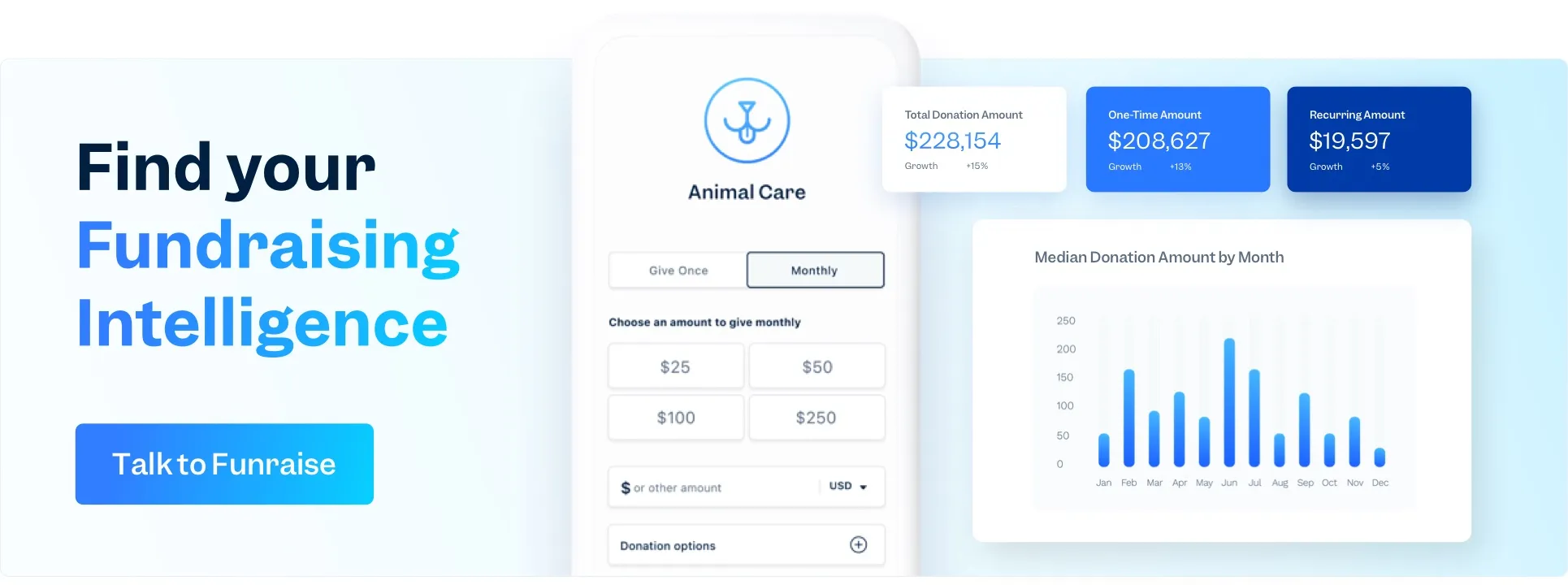Recession takeaways and FAQs for nonprofits
What is a recession and how will it affect nonprofits?
A recession is a tightening of the economy, whether through increased cost of goods and services, reduction of real wages, or a decline in the value of investments like stocks or land.
No matter which factor(s) lead to a recession, it means that consumers and donors have less money on hand and greater uncertainty in the stability of their savings. These elements lead to less freedom with impulse buys, investment acquisition, and large purchases.
In short, a recession may mean less money being donated to charitable organizations.
What is the best way to grow your nonprofit, even during a recession?
According to Justin Wheeler, Funraise CEO and Co-founder,
"If you want to scale your impact, you need to focus on growth.
So what is the main catalyst for growth?
INVESTMENT.
Scaling back investment in your programs will allow you to invest in people, systems, and other growth drivers—in turn, allowing you to scale up your programs.
This will most likely put you out of the infamous financial ratio you've been taught to maintain between programs and overhead, but this is the 21st century—high time for that mentality to be challenged and eradicated for good."
What is the one tool that my nonprofit needs to invest in during a recession?
Rather than thinking of what individual tool you want, talk to your team: What do they need? Reframe your perspective to start investing in your dynamic team rather than prioritizing one static tool.
Who profits most in a recession?
During a recession, nonprofit professionals should focus on acquiring charitable donations from the ultra-wealthy, as they benefit most financially during tough economic times. With substantial cash reserves and assets, their financial position allows them to make investments and donations to nonprofits during market downturns.
What jobs thrive in a recession?
Healthcare professionals experience strong job security during recessions. Other recession-resistant positions include utility workers, grocery store employees, discount retail staff, and freight/logistics personnel. These industries provide essential services that remain in demand regardless of economic conditions and, as such, may be safer donor prospects for nonprofits looking to widen their supporter base.
Do recessions affect charitable giving?
Yes. Previous recessions have shown to significantly impact the charitable sector as donors experience increased financial crisis during difficult economic times. Individual contributions often decline when household budgets tighten. Corporate donations typically decrease as businesses face profitability challenges. Foundations and major donors may reduce grant amounts due to investment portfolio losses. This reduction occurs precisely during tough times when community needs for nonprofit services increase.
How can nonprofits prepare for fundraising during an economic downturn?
In less challenging times, the nonprofit sector should diversify funding sources beyond traditional donations by developing earned income streams and building reserve funds. By implementing efficient donor management systems, strengthening digital fundraising efforts, and creating recession-specific messaging during times of economic prosperity, fundraising professionals demonstrate impact is essential. Developing donor relationships with committed major donors who can maintain support during economic hardship provides crucial stability.
How to do fundraising during an economic recession?
Focus on retaining your current donor base through personalized communication and appreciation to donors. Implement digital fundraising programs that reduce costs while expanding reach. Target recession-resistant industries for corporate partnerships. Create giving options at various price points to accommodate donors' financial situations. Emphasize measurable economic impact to demonstrate effective resource stewardship.





























.webp)
.webp)











.webp)
.webp)

.webp)
.webp)
.webp)




